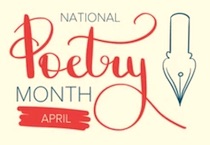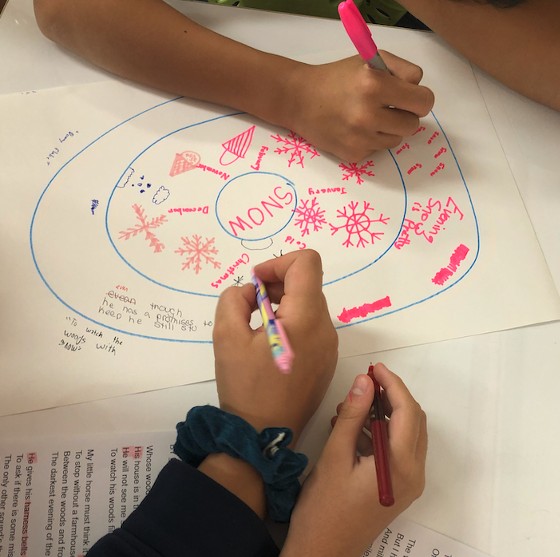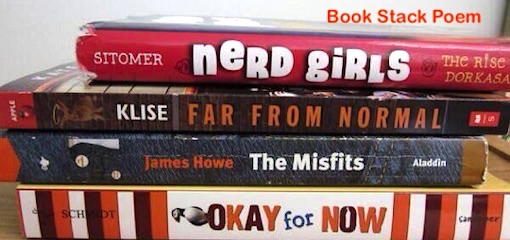12 Idea-Packed Posts about Teaching Poetry

Even if you LOVE to teach poetry and always do, we’re betting you’ll find some fresh activities here to add to your collection.
Poetry Fun: 10 Cool Teaching Ideas
Over the years Cheryl Mizerny has crafted poetry experiences that her students really enjoy. Her reading and writing ideas enable kids to understand poems without dreading the annual “poetry unit” she herself disliked as a tween. She shares 10 of her favorites, including the Book Stack Poem (see one below).
Ideas to Teach Poetry All Year Long
Megan Kelly always intends to integrate poetry across her units, but somehow ends up scrambling each year as National Poetry Month approaches. This fall she has a list of activities to hold herself accountable. Try some of her ideas in your own ELA, history, science or math classes.
6 More Poetry Activities to Use All Year
Megan Kelly is back with even more fresh ideas, whether your classes dive into poetry in April or throughout the year. Her latest unit has kids collaborating on visual analysis (see below), horoscope haiku, matching teachers to their poems, and more.

Kids analyze “Stopping by the Woods on a Snowy Evening” with focus on diction.
Novels in Verse! The Why, Which and How
Novels in verse offer quicker reads with instant character connections, vivid imagery, pathways to complex issues, strong narratives, and much more. ELA teacher Kasey Short shares how to use them in class and introduces lots of titles for your middle graders.
Invite Your Students to Peel Some Poems
Ramp up poetry positivity with the Peel the Fruit activity from Project Zero. Throughout the year NBCT Kathie Palmieri helps her fifth graders uncover layers of poetry understanding and then invites them to write their own. Their current favorite: the Intimate Object Poem.
What Changes Kids’ Minds about Poetry?
To guide middle grades students into paying more attention to poetry and reconsidering their often negative attitudes about reading and writing poems author and teacher Linda Rief suggests kids create heart books, do quickwrites and illustrate lines of their own work.
Celebrate Poetry Month with 5 Fun Activities
Teaching poetry can give students a sense of connection, collaboration, and creativity as they express themselves and read the expressions of others. During National Poetry Month, teacher-author Marilyn Pryle shares fun activities from her classroom that touch on all three.
Teaching Students That Poetry Is a Necessity
Dina Strasser finds more poets are writing about climate change and other social justice issues. Such poems can provide alternatives to middle schoolers when the themes aren’t too entangled in complex structures. She suggests some poetry options students can “hook into easily.”
Making Room for Poetry in ‘Standards Based’ Classes
How often do you share poetry with students? Reading interventionist and literacy coach Gwen Flaskamp shows how increasing students’ experience with poetry can build literacy, analytical and social-emotional skills and help meet state learning standards.
Using Poetry Pauses to Elevate Student Writing
Poetry “pauses” can become the heart and soul of English class AND address almost any reading and writing standard. Teacher-author Brett Vogelsinger shares three examples – poems that can help students extend their understanding of structure, character and personal narrative.
Integrate Arts in ELA with 2-Voice Poems
Writing poems for two voices lets student researchers delve deep into multiple sources and unearth differing perspectives. Jenn Bogard and Lisa Donovan offer a sample poem based on Dorothea Lange’s Migrant Mother image, merging the stories of the photographer and the subject.
Teach Social & Emotional Skills through Poetry
When students learn to identify and name the ideas and emotions in poetry and share their own emotions through writing poems, they better understand their feelings and build empathy and understanding for others. Teacher leader Kasey Short shares methods and lots of poems.































